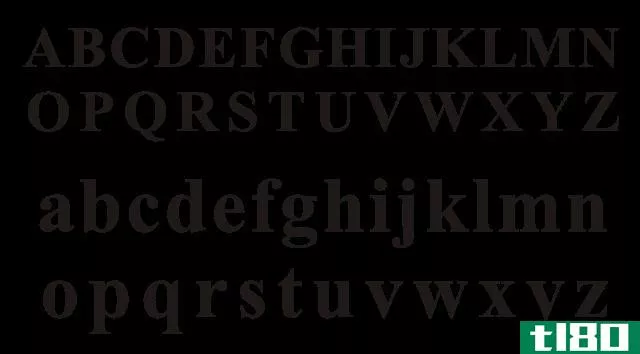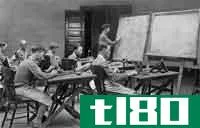古英语和盎格鲁撒克逊语
古英语是大约公元前500年至1100年在英国使用的语言。它是一种源于史前普通日耳曼语的日耳曼语,最初在斯堪的纳维亚半岛南部和德国最北部地区使用。古英语也被称为盎格鲁-撒克逊语,源于五世纪入侵英国的两个日耳曼部落的名字。古英国文学最著名的作品是史诗《贝奥武夫》

古英语例子
主祷文(我们的天父)写在纳玛·盖哈尔戈德的《圣经》里,写在《圣经》里,写在《圣经》里,写在《圣经》里,写在《圣经》里,写在《圣经》里,写在《圣经》里,写在《圣经》里,写在《圣经》里。
论古英语词汇
"The extent to which the Anglo-Saxons overwhelmed the native Britons is illustrated in their vocabulary... Old English (the name scholars give to the English of the Anglo-Saxons) contains barely a dozen Celtic words... It is impossible...to write a modern English sentence without using a feast of Anglo-Saxon words. Computer analysis of the language has shown that the 100 most common words in English are all of Anglo-Saxon origin. The basic building blocks of an English sentence—the, is, you and so on—are Anglo-Saxon. Some Old English words like mann, hus and drincan hardly need translation."—From "The Story of English" by Robert McCrum, William Cram, and Robert MacNeill "It has been estimated that only about 3 percent of Old English vocabulary is taken from non-native sources and it is clear that the strong preference in Old English was to use its native resources in order to create new vocabulary. In this respect, therefore, and as elsewhere, Old English is typically Germanic."—From "An Introduction to Old English" by Richard M. Hogg and Rhona Alcorn "Although contact with other languages has radically altered the nature of its vocabulary, English today remains a Germanic language at its core. The words that describe family relationships—father, mother, brother, son—are of Old English descent (compare Modern German Vater, Mutter, Bruder, Sohn), as are the terms for body parts, such as foot, finger, shoulder (German Fuß, Finger, Schulter), and numerals, one, two, three, four, five (German eins, zwei, drei, vier, fünf) as well as its grammatical words, such as and, for, I (German und, für, Ich)."—From "How English Became English" by Simon Horobin论古英语和古挪威语语法
"Languages which make extensive use of prepositions and auxiliary verbs and depend upon word order to show other relationships are known as analytic languages. Modern English is an analytic, Old English a synthetic language. In its grammar, Old English resembles modern German. Theoretically, the noun and adjective are inflected for four cases in the singular and four in the plural, although the forms are not always distinctive, and in addition the adjective has separate forms for each of the three genders. The inflection of the verb is less elaborate than that of the Latin verb, but there are distinctive endings for the different persons, numbers, tenses, and moods."—From "A History of the English Language" by A. C. Baugh "Even before the arrival of the Normans [in 1066], Old English was changing. In the Danelaw, the Old Norse of the Viking settlers was combining with the Old English of the Anglo-Saxons in new and interesting ways. In the poem, 'The Battle of Maldon,' grammatical confusion in the speech of one of the Viking characters has been interpreted by some commentators as an attempt to represent an Old Norse speaker struggling with Old English. The languages were closely related, and both relied very much on the endings of words—what we call 'inflections'—to signal grammatical information. Often these grammatical inflexions were the main thing that distinguished otherwise similar words in Old English and Old Norse. "For example, the word 'worm' or 'serpent' used as the object of a sentence would have been orminn in Old Norse, and simply wyrm in Old English. The result was that as the two communities strove to communicate with each other, the inflexions became blurred and eventually disappeared. The grammatical information that they signaled had to be expressed using different resources, and so the nature of the English language began to change. New reliance was put on the order of words and on the meanings of little grammatical words like to, with, in, over, and around."—From "Beginning Old English" by Carole Hough and John Corbett论古英语与字母表
"The success of English was all the more surprising in that it was not really a written language, not at first. The Anglo-Saxons used a runic alphabet, the kind of writing J.R.R. Tolkien recreated for 'The Lord of the Rings,' and one more suitable for stone inscriptions than shopping lists. It took the arrival of Christianity to spread literacy and to produce the letters of an alphabet which, with a very few differences, is still in use today."—From "The Story of English" by Philip Gooden古英语与现代英语的差异
"There is no point...in playing down the differences between Old and Modern English, for they are obvious at a glance. The rules for spelling Old English were different from the rules for spelling Modern English, and that accounts for some of the difference. But there are more substantial changes as well. The three vowels that appeared in the inflectional endings of Old English words were reduced to one in Middle English, and then most inflectional endings disappeared entirely. Most case distinctions were lost; so were most of the endings added to verbs, even while the verb system became more complex, adding such features as a future tense, a perfect and a pluperfect. While the number of endings was reduced, the order of elements within clauses and sentences became more fixed, so that (for example) it came to sound archaic and awkward to place an object before the verb, as Old English had frequently done."—From "Introduction to Old English" by Peter S. Baker凯尔特人对英语的影响
"In linguistic terms, obvious Celtic influence on English was minimal, except for place-and river-names... Latin influence was much more important, particularly for vocabulary... However, recent work has revived the suggestion that Celtic may have had considerable effect on low-status, spoken varieties of Old English, effects which only became evident in the morphology and syntax of written English after the Old English period... Advocates of this still-controversial approach variously provide some striking evidence of coincidence of forms between Celtic languages and English, a historical framework for contact, parallels from modern creole studies, and—sometimes—the suggestion that Celtic influence has been systematically downplayed because of a lingering Victorian concept of condescending English nationalism." —From "A History of the English Language" by David Denison and Richard Hogg英语历史资源
- 英语
- 肯宁
- 英语史上的关键事件
- 语言接触
- 中古英语
- 现代英语
- 突变
- 英语口语
- 书面英语
来源
- 罗伯特·麦克鲁姆;克拉姆,威廉;麦克尼尔,罗伯特。“英语的故事”,维京人。1986
- 霍格,理查德M。;阿尔科恩,罗纳,《古英语概论》,第二版。爱丁堡大学出版社。2012
- 《英语是如何变成英语的》,牛津大学出版社。2016
- 《英语语言史》,第三版。劳特利奇。1978
- 霍夫,卡罗尔;约翰·科贝特,《开始古英语》,第二版。帕尔格雷夫·麦克米伦。2013
- 古登,菲利普。“英语的故事”,Quercus。2009
- 彼得·贝克:《古英语概论》,威利·布莱克威尔。2003
- 丹尼森,大卫;霍格,理查德。《英语语言史》中的“概述”,剑桥大学出版社。2008
- 发表于 2021-09-14 07:34
- 阅读 ( 352 )
- 分类:语言
你可能感兴趣的文章
古英语(old english)和中古英语(middle english)的区别
...要的部落入侵了英国,所以这种语言是一种不同的方言。盎格鲁人、撒克逊人和朱特人是这些部落,他们所说的语言方言成为原始英语的方言。 关于中古英语的更多信息 十一世纪,英国地区发生了各种诺曼人的征服,这给英语...
- 发布于 2020-11-05 07:27
- 阅读 ( 361 )
苏格兰的(scottish)和爱尔兰的(irish)的区别
...被英国征服者列为最低阶层的人。这些人说盖尔语,即使盎格鲁撒克逊人期望他们的语言慢慢消亡。一次又一次的语言进化,它几乎消亡了,但是一些爱尔兰小伙子和小姑娘却让它活了下来。现在,爱尔兰大约有6万人能说一口...
- 发布于 2021-06-23 12:12
- 阅读 ( 209 )
古老的(old)和中古英语(middle english)的区别
...个基本阶段,即古英语、中古英语和现代英语。古英语是盎格鲁撒克逊语,从400年代到1100年左右使用;中世纪英语是从11世纪到14世纪左右使用的,现代英语是从14世纪开始使用的语言。虽然中古英语是在古英语的基础上发展起...
- 发布于 2021-06-28 09:57
- 阅读 ( 536 )
古英语(old english)和中古英语(middle english)的区别
...兰都占主导地位。它在苏格兰也有很长一段时间的流传。盎格鲁撒克逊人带来了这种语言。实际上,这是当时不同部落使用的不同方言的结合。在进一步的三个分类中,这种语言最初受拉丁语的影响。然而,我们确实在日常使用...
- 发布于 2021-07-10 09:32
- 阅读 ( 442 )
女孩(girls)和女人(women)的区别
...出现可以追溯到公元1250年到1300年间的中世纪。它来源于盎格鲁撒克逊人的单词“gerle”,也被拼写为“girle”或“gurle”。盎格鲁-撒克逊语中的“gerela”一词意思是衣服或衣服,可能是在同一个上下文中使用的。 “woman”一词来...
- 发布于 2021-07-13 02:25
- 阅读 ( 368 )
抢劫(robbery)和盗窃(burglary)的区别
...可以使用撬锁工具或物品强行进入。入室盗窃一词起源于盎格鲁撒克逊语或古英语和日耳曼语之一。窃贼这个词来源于“berg”,意思是“房子”,“laron”,意思是“theif”。
- 发布于 2021-07-13 06:55
- 阅读 ( 184 )
亲爱的(dear)和亲爱的(darling)的区别
...们中的任何一个。 英语单词“darling”起源于一个古老的盎格鲁撒克逊单词,“deorling”的意思是“亲爱的”。同样地,“亲爱的”源于古英语单词“deore”,意思是“珍贵的、有价值的、昂贵的、被爱的、被爱的”。因此,我们...
- 发布于 2021-07-13 12:42
- 阅读 ( 151 )
股东(shareholder)和股东(stockholder)的区别
...调;一个部分或部门,代理名词来自hold,古英语haldan(盎格鲁语),healdan(西撒克逊语),“包含,掌握;保留;福斯特,珍惜” 古英语stocc“树桩,柱子,木桩,树干,原木”,代理名词来自hold,古英语haldan(盎格鲁语),...
- 发布于 2021-07-13 17:52
- 阅读 ( 227 )
英语:历史、定义和示例
“英语”一词源于盎格鲁语,盎格鲁语是五世纪入侵英国的三个日耳曼部落之一。英语是几个国家的主要语言,包括澳大利亚、加拿大、新西兰、英国及其许多前殖民地和美国,以及印度、新加坡和菲律宾等多语种国家的第二...
- 发布于 2021-09-06 00:36
- 阅读 ( 217 )
丰富词汇:法语对英语的影响
...语的其他语言的背景知识。该语言起源于三个德国部落(盎格鲁、朱特人和撒克逊人)的方言,他们在公元450年左右定居英国。这组方言形成了我们所说的盎格鲁-撒克逊人,并逐渐发展成古英语。日耳曼语基础在不同程度上受...
- 发布于 2021-09-08 23:12
- 阅读 ( 283 )














